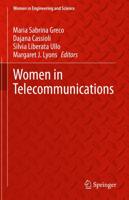Publisher's Synopsis
The widespread adoption of mobile devices has provided many important benefits to consumers, including the convenience of paying for goods and services using a phone. One mobile payment option is known as "carrier billing" - the ability to charge a good or service directly to a mobile phone account. Industry observers have noted the potential usefulness of carrier billing to consumers, and the industry continues to devote resources to promoting carrier billing as a payment option. As stakeholders have noted, carrier billing of third-party charges may be particularly beneficial for unbanked and underbanked consumers. Additionally, consumers have used text messages to donate funds to a charitable organization, with the charge placed on their mobile phone account. As carrier billing has developed, however, fraud has become a significant problem for consumers. In particular, mobile cramming - the unlawful practice of placing unauthorized third-party charges on mobile phone accounts - is a significant concern. Mobile cramming occurs when consumers are signed up and billed for third-party services, such as ringtones and recurring text messages containing trivia or horoscopes, without their knowledge or consent. In six recent enforcement actions, the Commission has alleged that such practices have cost consumers many millions of dollars, and in just three of these actions, defendants have agreed to orders imposing judgments totaling more than $160 million. As part of its consumer protection mission, the Federal Trade Commission ("FTC" or "Commission") works to ensure that consumer protections keep pace with developing technologies and payment mechanisms. In late 2013, following a Commission roundtable on mobile cramming and a number of FTC and state enforcement actions highlighting the prevalence of mobile cramming, the four largest mobile carriers stated that they would discontinue one form of carrier billing for commercial transactions - "Premium SMS" billing. Market participants continue to implement other kinds of carrier billing arrangements, however. In doing so, it is imperative that they keep in mind the same fundamental consumer protection principles that apply regardless of the type of technology used for billing. All stakeholders have an interest in combating cramming on the carrier billing platform, as promoting consumer trust is integral to promoting more widespread adoption of mobile payment systems and further innovation. Based on evidence reviewed to date, FTC staff recommends certain best practices for industry participants to protect consumers against unwanted charges while enabling innovation and consumer access to another payment mechanism.










